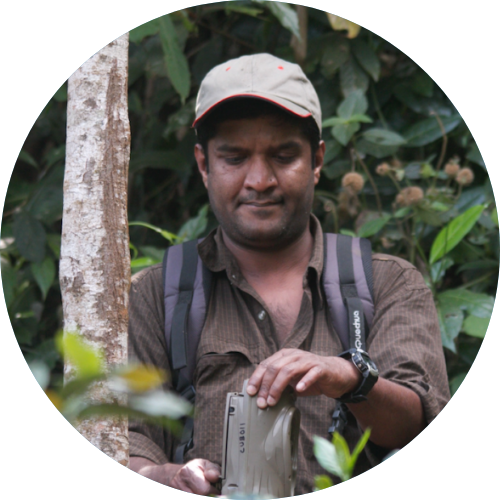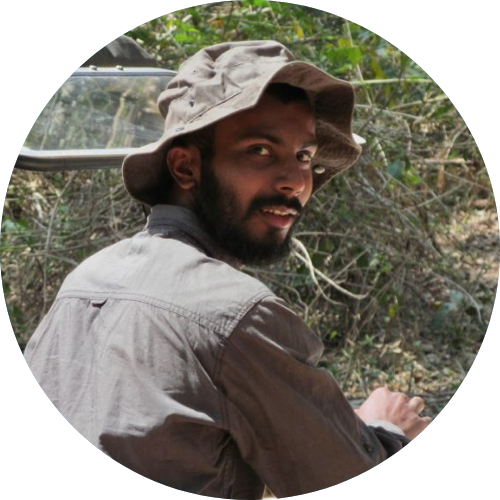Team

Dr Devcharan Jathanna
Dr. Devcharan Jathanna, known as Dev to his colleagues, has been integral to WCS-India, focusing on the ecology of large carnivores and their prey. He oversees field research and data processing, playing a key role in study design, data analysis, and publication-related activities. Dev provides technical support to various research programs, facilitates collaborations with national and international institutions, and assists in fundraising efforts. With an MSc in Wildlife Science from the Wildlife Institute of India and a Ph.D. from Manipal University, his expertise lies in small carnivore conservation in the Western Ghats, employing diverse methodologies including distance sampling and capture-recapture modeling. Dev is also actively involved in teaching and training initiatives, guiding students at the WCS-NCBS MSc Programme and conducting workshops across Asia.

Kiran Yadav
Kiran works as the Research Manager and carries out research-related activities, including mapping and geographical information systems (GIS) work, overseeing and coordinating the critical processing and validation of field data.

Santhosh M N
Santhosh works as a Research Officer. He is involved in Tiger and prey monitoring activities in field sites, and processing the field data.

Shivakumar M D
Shivakumar works as a Research Officer and is involved in tiger and prey monitoring.

Somashekar N B
Somashekar works as a Senior Research Officer and is involved in tiger and prey monitoring.

Srikanth Rao
Srikanth is currently working as the Senior Research Officer and involved in Tiger and prey monitoring. He performs research-related activities in field sites, and processing, validation of field data.